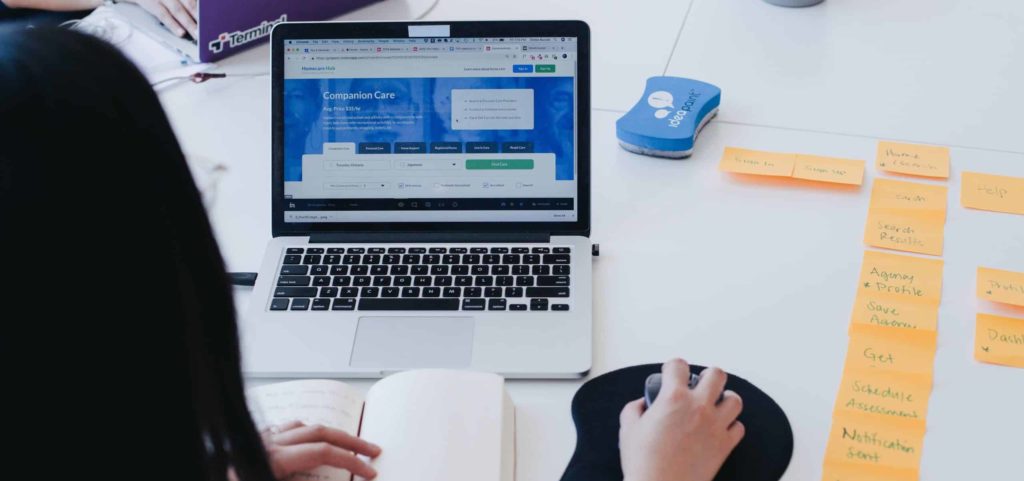Many students approaching graduation worry about the prospect of finding a job without experience. It’s a real concern, too, with many entry-level jobs favouring applicants with relevant experience, skills, and industry connections.
Well, there’s one clear way to solve this problem—internships! Real-world placements in genuine working environments, such as Practera’s industry experience programs, can help you gain valuable experience, learn more about your chosen industry, and stand out among other job applicants.
Keep reading to learn more about the different types of internships and how you can find placement opportunities.
What is an internship?
An internship is a type of work experience that runs for a limited time. Originally, internships were exclusive to medical graduates, but they’re now widely available to students and young people across many disciplines.
Depending on your line of study and career goals, your internship could involve working at a government agency, non-profit, small business, or large organisation. The fixed period can vary from a few days to several months.
Internships aim to provide students with meaningful, practical work experience related to their career interests. Among other benefits, joining an internship program will help you build valuable skills, make connections, and decide whether a given career is right for you.
The different types of internships
There are many different kinds of internships, each with unique benefits. The placement you choose will depend on factors such as your career goals, personal interests, financial situation, and schedule.
Keep in mind that internship expectations can differ between states and countries, so make sure to check your local government’s website for location-relevant information.
Unpaid internships
Unpaid internships are temporary placements completed as part of education or training. They’re a fantastic option for students looking to learn more about an industry and gain valuable contacts.
Most unpaid internships are lawful, but some are not. Remember the main benefit of the training should lean towards you—not the business. Under the fair work act, if the business is gaining more from the internship than you are, you may be an employee rather than an intern, and you may be entitled to payment.
During your unpaid internship, you’ll have no employment contract. Your days will usually involve observing others, seeing how the workplace runs, and receiving clear guidance on the ins and outs of the industry.
Unpaid internships are a great way to meet and form lasting business relationships with industry leaders, which can help you get a leg up once you start applying for jobs after graduation. You can also use your experience to boost your resume and build a list of positive references.
Gain Experience & Skills Employers Are Recruiting For Today!
Enrol for free in Practera’s government-backed live programs to build your employability skills
Paid internships
Paid internships require an employment contract. Unlike unpaid internships, in most circumstances, you’ll be entitled to:
- Employee working conditions set out by local government standards,
- Conditions of any registered agreement or payment award relevant to your industry,
- Minimum wages.
Through a paid internship, you can get hands-on experience in your chosen industry. It’s a great way to build hard and soft skills while helping you decide whether you’d like to continue along a particular career path.
Sometimes, you can add projects to your portfolio via a paid internship. For example, if you’re a graphic design student, you may help create graphics for an ongoing marketing campaign, which you can later use as an example of your work.
Virtual internships
Virtual internships are a form of computer-based learning. They provide many of the same benefits as in-person internships, but with more flexibility—especially for students who are long-distance or have busy schedules.
These digital internships usually involve connecting with industry leaders via online communication tools such as Zoom. You’ll work on authentic projects under direct guidance, gaining transferable skills and insights into your particular industry.
Virtual internships not only give you real-world experience in your field, they also equip you with the skills to work remotely and collaborate with people from different cultures, both critical skills in our hybrid-working world.
Externships
An externship (experience + internship) is an experiential learning opportunity stemming from partnerships between employers and educational institutions. Like internships, they aim to provide students with genuine, practical experience in their area of study.
You’ll normally complete an externship as a supplement to your regular study during the school year. During the externship, you’ll gain real-world insight into the theoretical topics you’re exploring in the classroom.
For example, if you’re an architecture student studying topography, you might complete a one-day externship taking topographical measurements on a building site. This experience will help you connect in-class theories with real-world scenarios.
Why internships are important for career development
While a university course can provide the hard skills we need to secure and maintain full-time employment after graduation, it doesn’t always offer experience. That’s what makes internships so important—they provide you with the soft skills and on-the-job exposure that potential employers value so strongly.
You’ve probably heard the age-old term “it’s not what you know, it’s who you know.” In other words, connecting with others is crucial for career development. Internships will introduce you to leaders within your chosen field, helping you build business relationships before graduation. These connections can provide you with invaluable advice and even offer job opportunities in the future.
Internships are also a great way to learn more about yourself, your existing skillset, and your career goals. You’ll gain a better understanding of your strengths and weaknesses along with what’s really involved in a job—so you can decide if you want to continue on the same path or switch things up.
Landing an internship: best practices
Landing an internship is challenging, but it becomes much easier when you know the best practices to follow. Here are some top tips for securing your dream placement.
Research and seek out early
The best way to find internships is to start searching early. Look for organisations in your industry and visit their websites—you’ll normally see a list of available and upcoming internship programs. You can also reach out to the company directly to enquire about placement options.
There’s no ideal time to start searching for an internship, but three to five months prior is a safe bet. This will give you time to weigh up your options and prepare well.
Seeking internships early will also demonstrate your organisation skills and passion to employers, boosting your chances of landing a position.
Update your resume and cover letter
Even if you don’t have any prior work experience, you can still create a convincing resume and cover letter for your internship application. Make sure to include:
- Your relevant skills and interests,
- Any volunteer experience,
- Your educational background,
- Any awards or recognitions,
- A professional summary sharing your future career goals,
- Clear contact information,
- Portfolio examples if relevant.
In your cover letter, dive deeper into the reasons why you’re interested in the internship position and the skills you could bring to the table. You can include soft skills, like communication, self-motivation, and leadership; and hard skills relevant to your chosen industry.
Finally, include one to three professional references. These could be university lecturers, teachers, volunteer leaders, or any other people who can speak to your skills and demeanour.
Interview practice
A practice session can help you prepare for your interview, build confidence, and know what to expect. Your practice and prep process should be similar to a normal job interview. Make sure to:
- Research the company. Learn about its vision and goals and reference them during the interview, connecting them to your passions.
- Practice common interview questions with a family member or friend. Focus on your delivery and body language along with the quality and relevance of your answers.
- Prepare your outfit. A common tip is to dress similarly to the company’s staff. If all else fails, business casual is best.
- Think of questions to ask the interviewer. Asking questions shows the interviewer you’re genuinely interested in the role and keen to learn more about the company.

How to find an internship
Thanks to the internet, finding internships is easier than ever—but there’s still amazing value in recommendations from educational leaders, family, and friends.
Research online
There are several ways to find internships online. You can start with dedicated websites like Glassdoor or LinkedIn and search for opportunities in your industry and area.
Alternatively, if you’re looking for specific opportunities, try visiting your dream company’s website. You’ll often find placements listed in the ‘opportunities’ or ‘jobs’ section—if not, you can always reach out to the organisation via phone or email.
Reach out to your networks
Networking is a fantastic way to find internship opportunities that haven’t been listed online—and your chances of landing the position will soar, too. Ask friends, family members, and fellow students if they know of any local placements (and see if they can put a good word in for you!)
Ask your educational institution
Many educational institutions connect students directly with industry experience programs. This is especially true with externships, which happen during the school year.
One simple way to find opportunities is to contact your university’s Career Services team. They’ll walk you through your options and help you plan and prepare, giving you the best possible chance at securing a position.
You can also attend career information events and workshops, where you may be able to apply for internship placements on the spot.
Finding an internship through Practera
An easy way to find life-changing internship opportunities is through Practera’s powerful industry experience programs. These programs connect you with businesses around the globe, landing you life-changing placements to help you build confidence, gain critical skills, and learn more about your industry. All you need to do is express your interest and the Practera team will handle the rest!
To find out more about these programs, head over to our Practera for Students page to find the perfect industry experience program for you, and apply today!
Gain Experience & Skills Employers Are Recruiting For Today!
Enrol for free in Practera’s government-backed live programs to build your employability skills



